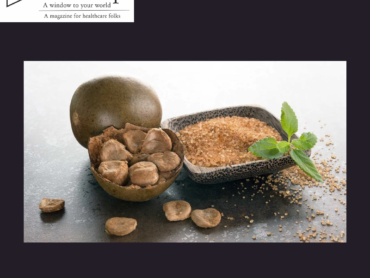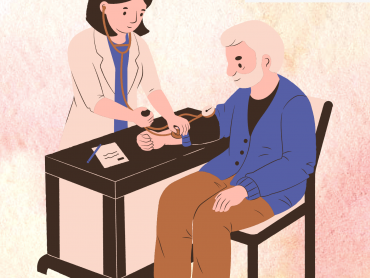From a phone cover to cling film-wrapped books to medicine bottles and capsules, we are surrounded by this polarizing polymer, abstractly called ‘plastics’. From the discovery/invention in 1907 of this miraculous substance to the formation of the Great Pacific Garbage Patch, plastics have evolved from saviour to saboteur.
How is it that something so helpful and revolutionary came to be one of the most dreaded pollutants of the 21st century?

Image source: National Geographic
While it is a truly versatile substance with universal applications, it’s also universally known for being almost indestructible by the action of the elements. We make something that’ll last forever without much thought about how the waste will be dealt with – basically an information age maxim of going head-first into innovations without the anxious and structured approach.
You already know this though; and probably already have an opinion – the ‘woke’ citizen of the digital era – having a thought, making decisions that impact company sales in a matter of seconds. Of course, brand image matters. Some companies recognize this thought pattern- building in the general public and market their products to the ‘environment-conscious’. Recently, this has come to mean a shift in smartphone packaging, focussing on smaller ecological footprints by removing the products you get with your device, though this, in reality, means precious little. Fashion industries, which you wouldn’t associate much with plastics, used 65 million tons of plastics for textile production in the year 2016, and this number has only risen ever since.
It can very assuredly be said that you might have come across some pictures like this one:

Image source: One Green Planet
Needless to say, as humans, this is on us. Our strong orientation towards socially defined success does give us tunnel vision when it comes to this. Practically speaking, we are seeing the bystander effect in real life, on a global scale. ‘It is not my issue for the moment’, we think as we brush aside another human-made crisis. With procrastination, the ever-present default mode looming over our shoulder, let’s try not to hit snooze on this problem.
The Problem in Numbers
Sigh! You are probably pondering what sermon is lined up for you next. Worry not, it’s just a few more numbers to put perspective to all the words used so far.

Image source: Times of India
Groceries and FMCG products make up for most of India’s plastic usage, with 42% of the total annual production going towards ‘packaging’. And, quite logically, it’s the one area where we can have a maximal impact as consumers. No-plastic grocery stores have come up in many towns in India in the spirit of the environment-conscious narrative. Just take glass jars and cloth bags to these places and avoid all the clutter of plastics and polythenes. Think about it; once at home, the plastic package is just chucked into the bin, and the foodstuffs go into the jar – why not eliminate the middleman?

Image source: Times of India
India in fact is actually one of the better-off countries in terms of recycling, with almost 47% of our products being recycled. This is a sizeable contribution from a developing nation, considering the fact that western nations have often blamed the East’s progress into the modern age as a major factor in the global pollution crisis. We still have a long way to go though – we haven’t stopped the production of new polymers, due in part to the economic unsustainability of the recycling part – its much cheaper to make newer plastic than go through the burden of collecting, recycling and reusing whatever tons of material made before.
With plastics, there is a simple mantra: Ask yourself: Do you need to use that bit of plastic more than once? Will you ever reuse it in a productive way? If you find your answer to be in the negative, maybe the planet is better off for you saying ‘No!’ when offered that 5 rupee carry bag the next time.
If not plastics, then what?
The wonders of modern science have figured out a solution even to a problem as complex as that of the parasitic plastic. Plastic bags have been replaced by cotton-polyester blends, which were in turn replaced by well made and reinforced recycled paper and cardboard bags.
A UK company called Skipping Rocks Lab has come with an edible water container, made from substances extracted from algae. Shoes are a major source of plastic pollution since once worn and torn, they can’t really be reused. Reebok has made an effort to make soles and ultimately aims to make shoes out of completely recyclable plant material. (https://www.onegreenplanet.org/lifestyle/reeboks-new-plant-based-running-shoe-is-made-from-algae/).
There is an entire website dedicated to a plastic-free lifestyle at https://lifewithoutplastic.com/ and many such online

Image source: Maxgustafson.com
initiatives exist. Efforts are being made by environment-conscious corporations and individuals to reduce their plastic footprint during their day-to-day activities. From using jute and paper bags for groceries to charging higher fines for littering, from buying for long term use over one-time use to reusing the plastics already at home, the war against plastics is picking up steam. We are becoming aware, and taking action!
This isn’t an article to induce a guilt trip. It is merely an attempt to bring to consciousness the constant state of misunderstood panic our world lives in. We can’t afford to stare at each other blankly anymore and hope a solution randomly appears in a moment of serendipitous discovery. As said by Chai Jing, Journalist and Environmental Activist – “The strongest governments on earth cannot clean up pollution by themselves. They must rely on each ordinary person, like you and me, on our choices, and on our will.”
References:
-
https://www.nationalgeographic.org/encyclopedia/great-pacific-garbage-patch/
-
https://www.wired.com/story/apple-iphone-no-charger-gallium-nitride/
-
https://www.newsecuritybeat.org/2020/07/plastic-pollution-woven-fast-fashion-culture-2/
-
https://www.thehindu.com/life-and-style/hyderabad-gets-its-first-zero-waste-grocery-store-that-encourages-customers-to-bring-their-own-non-plastic-packaging/article29431293.ece
-
https://www.smithsonianmag.com/innovation/rise-zero-waste-grocery-stores-180971495/
-
https://www.bpf.co.uk/article/the-plastics-industry-in-india-an-overview-446.aspx
Featured image source: Pexels









